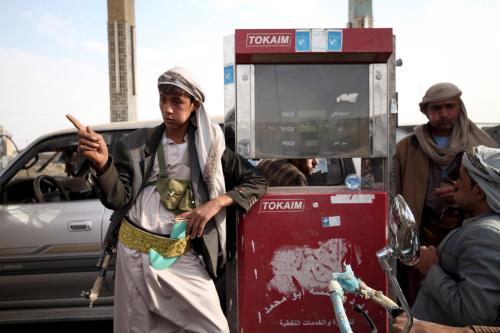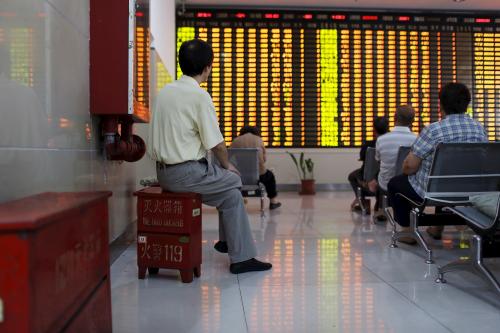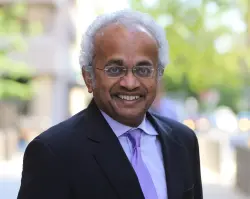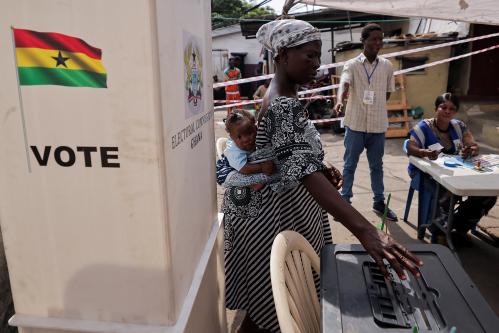Future Development will be taking a break until the week of January 9th. We wish you the best for the holidays and look forward to hearing your comments again in the New Year.
Following a three-year-old tradition, we are closing 2016 by reviewing the past year in light of our predictions from January. We will also attempt to forecast the next year as we enter the new year.
In past years, our economic forecasts were mediocre at best, but we were quite good at predicting sports or technology trends. This year was different. While trying to make a safe bet in expecting Spain, France, or Germany to win at Euro 2016, we failed to spot the outside victory of Portugal.
In economics, we also failed to predict the outcome of the Brexit referendum (nobody else did either). However, on other matters, the team of Future Development bloggers did reasonably well in forecasting the main socio-economic trends and shifts. Here are the six main issues we highlighted at the beginning of the year:
- The dollar will be stronger, oil prices will remain low, and the effect of monetary policy normalization will be very limited. Correct. According to the Federal Reserve Board, the S. dollar trade-weighted index appreciated from 122 in mid-December last year to 127 today; crude oil prices have risen from around $37 in December last year to $50-53 most recently but are still at the same nominal level as they were at the end of 2004. Prospects for tighter monetary policy have raised sovereign yields, but have not (yet) resulted in major disruptions to developing countries’ access to global capital.
- The Islamic State will be defeated; Organization for Economic Cooperation and Development countries will accept a record number of refugees and migrants. Partly correct. The Islamic State has lost a lot of ground in Iraq and Syria. Germany and Canada especially have accepted over a million refugees.
- Official development assistance (ODA) will be squeezed by refugee costs and climate change financing commitments; Partly correct. Although ODA figures are not yet available for 2016, the OECD Development Assistance Committee reports on its members’ forward projections. These indicate that the upwards trend in overall ODA of the past few years has stalled and is expected to remain flat through 2019. The recent reduction in overall commitments to replenishing the African Development Fund and the International Development Association (notably by several European countries) also indicates the stresses on ODA in many important donors.
- Even though emerging economies will disappoint, at least 100 million more people will be joining the global middle class. During 2016, growth in large, developing economies in Asia, like China, India, Indonesia, Pakistan, and Vietnam, is continuing to lift millions of people into the middle class. Model estimates suggest the global total should well exceed 100 million, but almost all of this increase took place in Asia. Elsewhere, the numbers in the middle class have stagnated.
- Oil exporters will reform their economies. The Gulf Cooperation Council—the political and economic alliance between Saudi Arabia, Kuwait, the United Arab Emirates, Qatar, Bahrain, and Oman—reduced energy subsidies and some even eliminated them. Others countries, including Algeria, have cut the public-sector wage bill.
- Food prices will remain low or fall, helping reduce global hunger. The Food and Agriculture Organization of the United Nations cereal price index averaged 141 in November, almost 8 percent below the previous year’s level. A strengthening dollar and good harvest prospects in Argentina and Australia have put downward pressure on wheat prices, while rice remains at multi-year lows thanks to higher output and sluggish demand.
The year 2017 will no doubt be at least as turbulent economically and politically as 2016. In Europe, there will be national elections in Germany, France, and possibly Italy; and with a new U.S. administration taking office, major economic challenges will remain, both in terms of macro and trade policy.
What will be the implications of the emerging tensions within Europe and between Europe and the U.S. for emerging economies? Will we see a continued slowdown in China and its neighbors? Will the world remain on track to end poverty?
These and many other questions will be covered in our next blog when the Future Development team will make its forecast for 2017. As there are no major sporting events that we know enough about to make predictions on, we will stick to economics for a change.
The Brookings Institution is committed to quality, independence, and impact.
We are supported by a diverse array of funders. In line with our values and policies, each Brookings publication represents the sole views of its author(s).










Commentary
Reviewing 2016: Future Development forecasts economics better than soccer
December 21, 2016